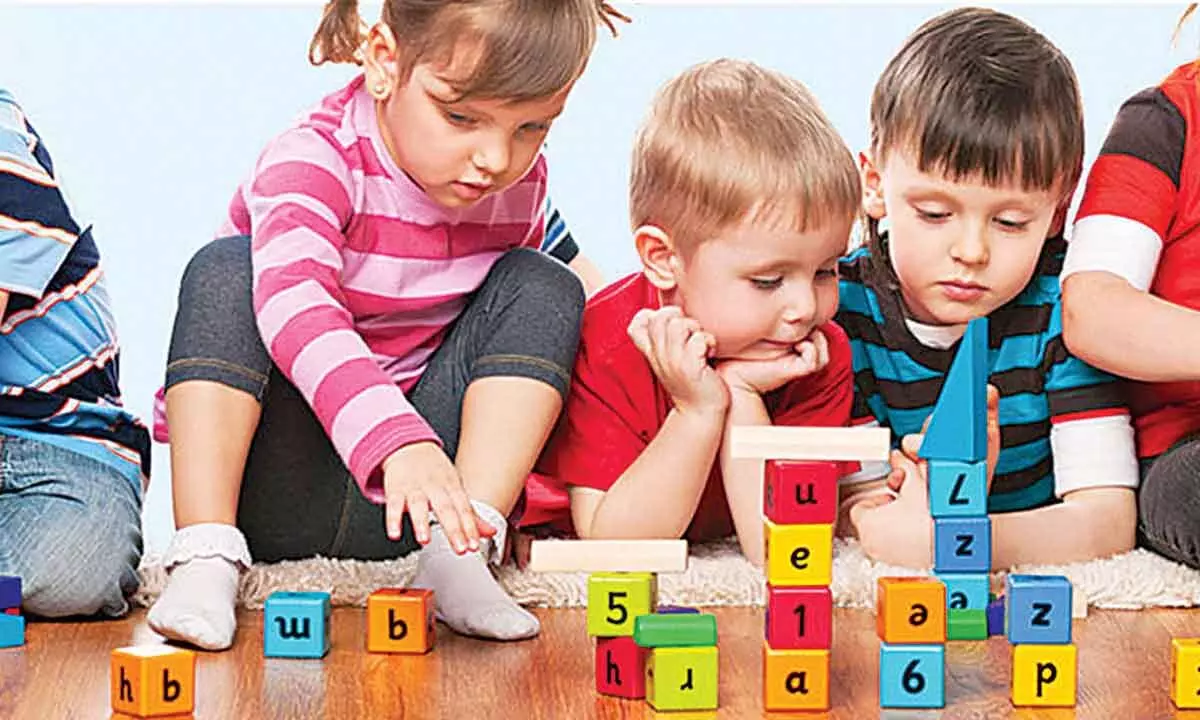Live
- Tender apology to CM, mantri tells Allu Arjun
- CM condemns attack on Allu Arjun’s house
- Allu Arjun’s house attacked, police arrest 6 persons in city
- APSRTC to replace diesel buses with electric buses
- Komatireddy brothers should get Oscar for lying: BRS
- KTR asks farmers to up the ante against TG govt
- SCB residents raise pitch for fair compensation for acquired lands
- TGMC crackdown on quackery continues, over 400 FIRs filed
- TG seeks PMAY fund boost as 80pc of State turns urban
- Don’t buy assets from known ganja smugglers: DIG
Just In
Play is a key to early childhood education


The new National curriculum framework for Early Childhood Care and Education (ECCE) launched by The Ministry of Women and Child Development is a...
The new National curriculum framework for Early Childhood Care and Education (ECCE) launched by The Ministry of Women and Child Development is a major, positive step towards foundational development of children. According to research in neuroscience, 90% of a child’s brain is developed by the age of 6. It is indeed heartening to see the importance of foundational development among children between 3 to 6 being given its due with the new ECCE framework.
The new ECCE framework involves parents, teachers, and community as key contributors or stakeholders to the foundational development of a child. It is designed to enable Anganwadi workers, caregivers, and teachers to fill-in the gaps with respect to nutrition and stimulation among children. With more than 8 crore children below the age of six under Anganwadi care, the framework will involve capacity building of Anganwadi workers.
The MOST interesting part is the focus on inculcating physical, motor, cognitive and socio-emotional skills in children by the age 6, where ‘play’, both structured and unstructured, as well as physical education have an important role to play.
Structured physical education will be one of the important enablers to implementing ECCE framework among children between age 3 to 6. Section III of the ECCE framework also talks about combining both indoor and outdoor activities for holistic development of children. There is ample research evidence to support that physical education not just makes a child physically fit and active, it also fosters ethical as well as social-emotional traits, improves academic performance, and stimulates the child holistically.
Therefore, adoption ofstructured physical education program as part of the curriculum in schools and Anganwadi care centres at scale will lay a strong foundation for holistic development in children, all while retaining the fun element intact in their learning process.
While excessive screen time in age group of 2 to7 has already started showing adverse impact, regular physical activity also has a key role to play in combating physical and psychological health issues from an early age. ECCE framework launched by the Government has promptly reinforced the importance of structured foundational development for children; it is action time for education sector leaders, parents and other key stakeholders to implement it at scale towards a holistically Viksit Bharat.
(The author is Founder, CEO and MD, Sportz Village - India’s leading youth sports organization Columnist and Author of the book ‘Get Kids To Play’)

© 2024 Hyderabad Media House Limited/The Hans India. All rights reserved. Powered by hocalwire.com






